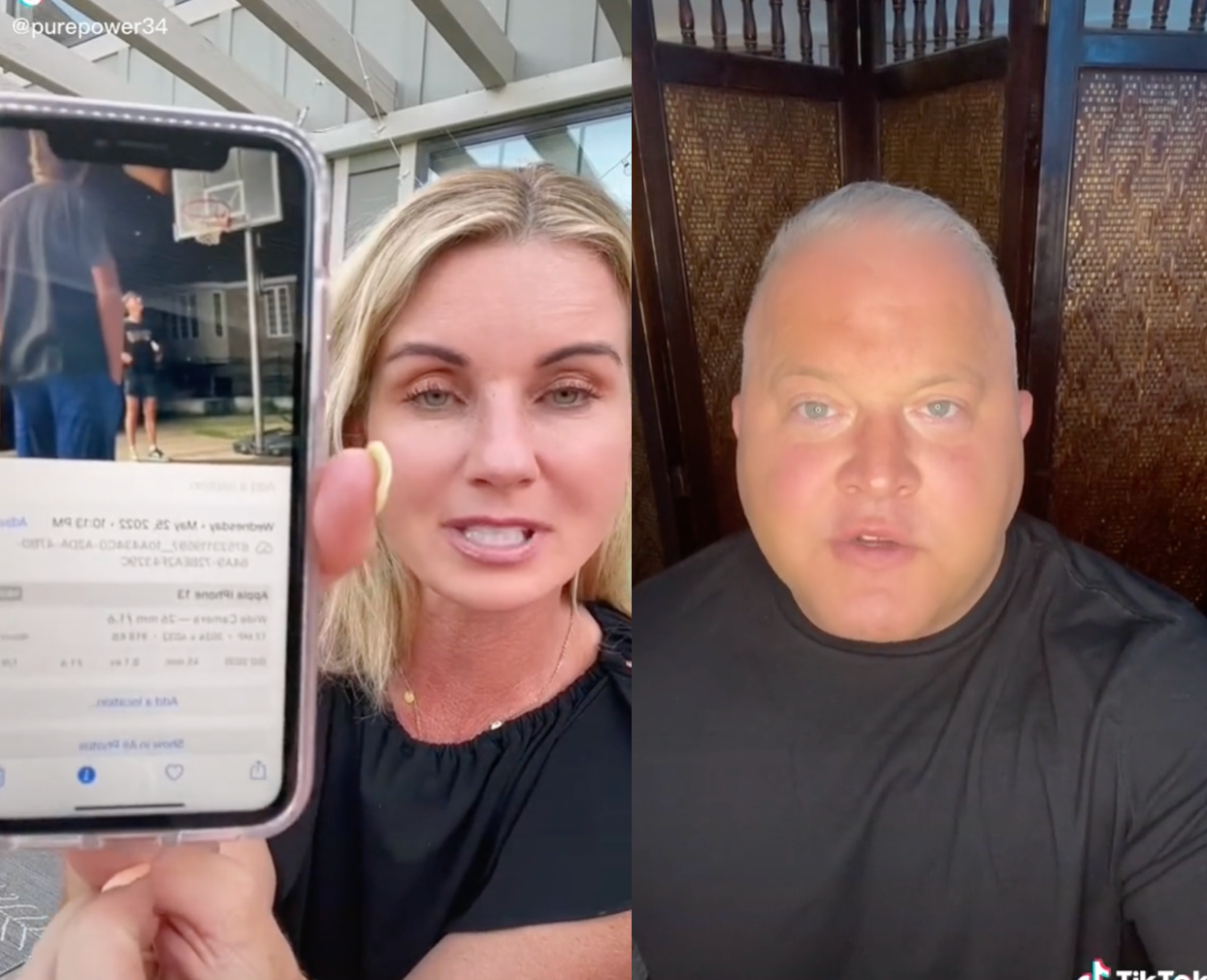The Independent's journalism is supported by our readers. When you purchase through links on our site, we may earn commission.
Retired detective explains why online dating users should never text their photos to matches
‘If you’re online dating and you send photos to a stranger, you just sent them where you were’

Your support helps us to tell the story
From reproductive rights to climate change to Big Tech, The Independent is on the ground when the story is developing. Whether it's investigating the financials of Elon Musk's pro-Trump PAC or producing our latest documentary, 'The A Word', which shines a light on the American women fighting for reproductive rights, we know how important it is to parse out the facts from the messaging.
At such a critical moment in US history, we need reporters on the ground. Your donation allows us to keep sending journalists to speak to both sides of the story.
The Independent is trusted by Americans across the entire political spectrum. And unlike many other quality news outlets, we choose not to lock Americans out of our reporting and analysis with paywalls. We believe quality journalism should be available to everyone, paid for by those who can afford it.
Your support makes all the difference.A retired detective has explained why online dating users shouldn’t be sending photos to people they’ve from the apps, as those images can reveal information about their location.
On TikTok, Mike, a former detective who goes by Killer Bee Tactical, LLC , often shares videos about safety and security tips.
In a recent clip, he responded to a video posted by @persnicketybox, who said that when she downloaded a photo on her iPhone, sent to her by her son, she clicked the information button underneath the image. From there, she could see the place and time in which the photo was taken.
He then explained a scenario of online dating and how discovering someone’s location through a photo they texted can be a little dangerous.
“If you’re online dating and you send photos to a stranger, you just sent them where you were,” he explained. “So if you’re standing on the porch when you took the photo, that could be an issue.”
Mike noted that if you want to send someone a photo that you’ve taken, there’s a way to do so without your location being shared.
“A screenshot doesn’t have that information,” he continued. “Take a screenshot of the photo, send a screenshot.”
As of 2 June, the video has more than 2.4m views, with TikTok users in the comments applauding Mike for sharing such a useful tip about iPhone photos and how big of a difference it can make.
“Ugh this is so important. Boosting. Had no idea,” one wrote.
“You have no idea how many lives this could save,” another added. “Thank you.”
@purepower34 #stitch with @persnicketybox @purepower34 screenshots #momsoftiktok #dadsoftiktok #kidssafety
♬ Summer - Instrumental - Devinney
A third viewer said: “As a security consultant I love that you shared this info for people’s safety…Keep up the great work!”
Some TiKTok users have also said that they avoid sending photos and sent tips for disabling one’s location in iPhone pictures.
“Yep, always screenshots. Especially when I use filters and they can reverse photo,” one wrote.
“You can also change your settings so that your camera doesn’t have location permission,” another added. “That’s how I prefer mine.”
Speaking to The Independent, Mike explained how location services are often enabled on many phones, which could unintentionally give people information that you don’t want to send out.
“If you didn’t know this was part of the photo, you could send a stranger your routine: your home address, where you work, buy groceries, go to the gym, or where your kids go to school. People with bad intentions could exploit this feature,” he explained.
“A screen shot doesn’t record the location, but you can also send your photos through an app that scrubs the data off the photo,” he added. “When I was in crimes against children working internet crimes, we would sometimes get a break on a child exploitation case from the data on the photo or video.”



Join our commenting forum
Join thought-provoking conversations, follow other Independent readers and see their replies
Comments